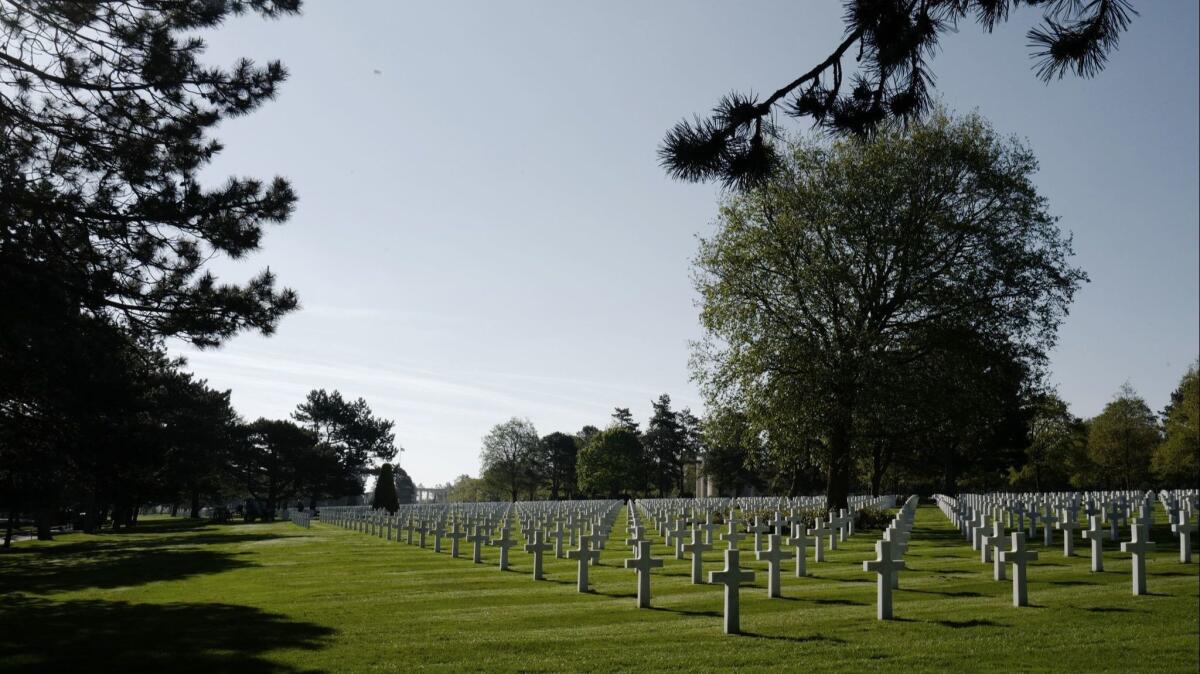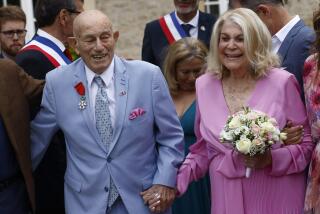A father’s D-day stories, a French orphan and a daughter’s destiny fulfilled

My father’s part in the D-day invasion in June 1944 changed his life, and the stories he told me about his time in France would shape my life. But I didn’t know that then.
Dad was a Seabee, an engineer and first lieutenant in the Naval Construction Battalion. He spent five months on the Normandy coast in 1944, on the cliff above Omaha, the American landing beach.
He loved to tell how his high school French made s’il vous plaît sound like “silver plate.” But he would smile remembering the kindness and patience of the French at his attempts.
When his turn came to be the officer in charge of the mess hall in the Navy camp, he would load up pans of fresh food that would have gone to waste and take them to a different farm house each evening.
“Oh, they would be so grateful,” he would say, his eyes shining as he remembered the happiness and gratitude of the farmers at this simple goodwill gesture.
In the Kansas town that was home, the astonishing story of Eisenhower lives on »
My favorite story was about an orphan boy named Gilbert, whom Dad took under his wing, making sure he came through the lunch line with Dad every day. They became so close that my father tried to adopt Gilbert and bring him home. He was unsuccessful.
I could feel the energy behind the stories, from the man who helped me with my math homework, tucked me in at night, comforted me when I was afraid. I was fascinated by his tales, by the world they created, of a place far away that my father wanted to remember and talk about.
The French orphan Gilbert felt like a shadow, his presence hovering, slightly out of focus. But France, where it had all taken place, felt like somewhere I already knew.
In high school, I chose to study French, although Spanish was the practical language in Southern California. I would continue to study the language throughout my adult years, following a passion I couldn’t explain.
Near the end of my father’s life, his body weak with cancer, when he spoke about his time in France during the war, his eyes shone, he sat up straighter and his voice came out clear and strong. For those moments, he was 30 again, playing his part in turning the tide of World War II.
He spoke about Gilbert then, his voice soft and wistful: “I wonder whatever happened to him?”
Two years later, I stood on the cliffs above Omaha Beach, turning my face into the stiff wind to dry my tears. I was there to retrace my father’s footsteps for the 50th anniversary of D-day and to accept a medal in his honor.
I had spent a day touring the invasion beaches and had learned that he had been a part of the largest land and sea invasion in history.
Although I wasn’t sure how to spell Gilbert’s last name, I put an ad in the Normandy newspaper in an effort to find him. By a combination of miracles and providence, I connected with Gilbert on what would have been my father’s 80th birthday.
In our emotional reunion, I finally understood my passion for knowing French; Gilbert didn’t speak English. When I told him my father had never forgotten him, he wept.
He had told his wife, daughter and grandsons about the kind lieutenant who had loved him and had wanted to take him home to America.
“Someday, someone will come,” he had said.
My father’s love and his stories led me to France and to Gilbert. They also created in me a deep connection to the D-day anniversaries that didn’t end with the 50th.
I have stayed close to Gilbert and his family, and attended the 60th and the 70th anniversaries, working as a translator and guide for returning veterans. The French locals would swarm around the veterans, all of us wiping away tears as I translated their words of gratitude.
I’ll be in France for the 75th anniversary ceremonies, probably the last time that any veterans from D-day will be alive for the events. I’ll be staying with Gilbert’s widow, who has become like a sister to me.
My heart is pulling me back, for my father, for Gilbert and for all the men of the Greatest Generation who risked and lost their lives in France, fighting to preserve our freedom.
Diane Covington-Carter’s award-winning memoir, “Finding Gilbert, A Promise Fulfilled,” tells the story of finding her father’s French orphan.
Departure Points explores the ways traveling changes us, whether it’s a lesson learned or a truth uncovered. You may submit a first-person essay of 700 or fewer words to [email protected] using “Departure Points” in the subject line. Please include your first and last names and your contact information for editorial consideration.
More to Read
Sign up for The Wild
We’ll help you find the best places to hike, bike and run, as well as the perfect silent spots for meditation and yoga.
You may occasionally receive promotional content from the Los Angeles Times.






